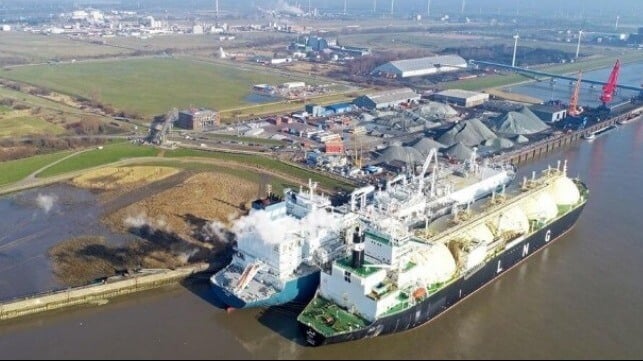EU Approves “Exceptional” $4B Subsidy for German LNG Import Terminals
Germany's $4.2 Billion LNG Terminal Investment

The European Commission has given the green light to Germany’s request for $4.2 billion in state subsidies. This funding aims to support the construction of four floating terminals for liquefied natural gas (LNG). The move is part of Germany’s strategy to transition away from reliance on Russian pipeline gas supplies. The decision comes amid ongoing concerns about energy security in Northern Europe, especially following the disruptions caused by geopolitical tensions. The approval highlights the EU’s flexibility in competition rules when it comes to urgent energy needs.
Support for Floating LNG Terminals
The aid package will primarily benefit Deutsche Energy Terminal (DET), a state-owned company responsible for operating the floating storage and regasification units (FSRUs). These units will be stationed along Germany’s northern coast, specifically in Brunsbüttel, Stade, and Wilhelmshaven. The FSRUs were chartered quickly during the peak of Europe’s energy crisis in December 2022. Germany had to pay high day rates to secure enough LNG to meet its energy demands as Russian gas supplies dwindled. This was a costly but necessary measure to ensure energy stability.
DET has been established to manage these floating terminals effectively. The company leases the receiving capacity of the terminals to European gas importers through short- and medium-term auctions. However, the difference between the revenue generated from these auctions and the actual costs of chartering the FSRUs results in recurring losses for DET. The government grant will help cover these losses, ensuring the company’s financial viability. If losses exceed current projections, the aid package could increase to $5.2 billion. Importantly, the plan includes a sunset provision. German authorities have committed to decommissioning the floating terminals in Brunsbüttel and Stade once permanent onshore facilities are completed. Afterward, the unused FSRUs will be sublet to other charterers globally.
Environmental Concerns and Future Outlook
Despite the urgency of the situation, environmental groups have raised concerns about Germany’s significant investment in new fossil fuel infrastructure. Critics argue that this could lead to a long-term dependence on natural gas, undermining efforts to transition to renewable energy sources. The Institute for Energy Economics and Financial Analysis (IEEFA) suggests that the rush to build new LNG terminals may be slowing down. According to their analysis, LNG imports into the EU have already begun to decline, indicating a potential peak in demand.
Since the start of 2023, several countries have postponed or canceled plans for new LNG terminals or expansions. Nations such as Albania, Cyprus, Ireland, Latvia, Lithuania, and Poland have all shelved their infrastructure projects. The future of three planned terminals in Greece remains uncertain. Ana Maria Jaller-Makarewicz, the lead energy analyst for Europe at IEEFA, noted that the construction spree for LNG terminals in Europe might be coming to an end. This shift could signal a broader reevaluation of energy strategies across the continent as countries weigh the benefits of LNG against the need for sustainable energy solutions.
